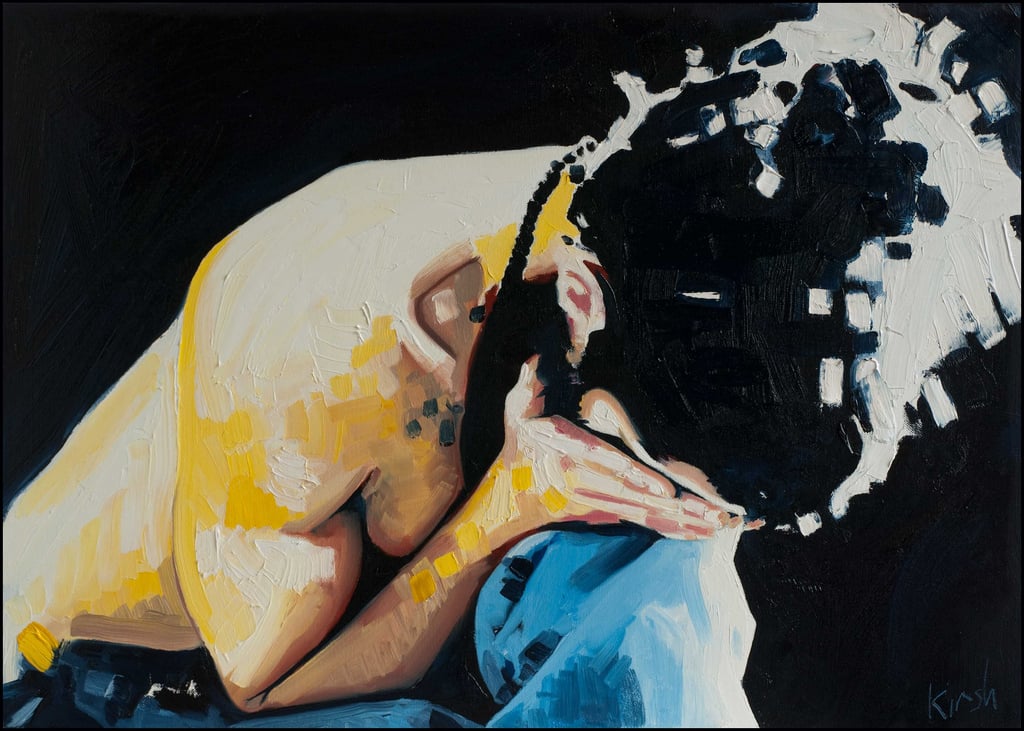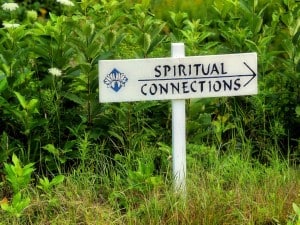Spiritual and Religious: A Task
Ever heard somebody say “I’m spiritual but not religious”?
Of course you have. After all, recent reports are showing that 72% of people between 18 and 29 use this statement to describe themselves. I, perhaps not surprisingly (I am a Jesuit after all), fall into the remaining 28%. When I read those numbers, and you can find other reliable (albeit less shocking) research numbers from the Pew Forum here and here, I admit to being a bit downcast, even angry. But given those numbers maybe I should have been better prepared when, during the middle of a lab I was teaching at Regis University, one of my students brought up the phrase.
Little did she realize that there was something inside me that just had to get out, or that what I had to say about being spiritual but not religious wasn’t pretty or polished. She didn’t know that I think claiming to be spiritual but not religious is all-too-often little more than a selfish cop out.
But she also didn’t realize how much she – or the spark her comments put to those smoldering statistics – would teach me in turn about how far I still have to grow in learning to respond with love, hope, and patience. So here’s my (shocking, I know) attempt to actually practice what my student taught me, here’s my effort at a patient answer to why I think being spiritual but not religious just isn’t enough.
***
Like any good philosopher, I better start us out with some definitions. Religion first. Let’s say that religion is that patterned set of attitudes, beliefs and practices that orient a community of people toward the divine. I want to point out three things in that definition, it’s got (1) attitudes/beliefs/practices, (2) community, and (3) the divine. We need them all. Spiritual second. Let’s call spirituality the personal, individual way each of us relate to the divine. Spirituality is the way that the divine works in and with each of us to draw us into a living relationship, it’s the way God writes God’s holy law on our hearts in idiosyncratic ways.
Granted these definitions what we have here is a presentation of religious and spiritual as a linked pair. Religion is the way a group of individuals practice their personal spiritualities so that they’re capable of being built into a community. And our individual spiritualities are themselves formed out of the religions we practice together. They go hand in hand.
I’m even willing to go as far as to say that we can’t be spiritual and not religious unless we are willing to settle for a community-less spirituality. The thing that really fires me up about this kind of community-less spirituality is how quickly it tends toward the self-centered – and this fires me up not because it’s impossible for my own spirituality to become selfish, but exactly because it’s so very possible. It’s this: without religion, without a living community of spiritual friends, I simply have no one to hold me up to any standards. There would be no one with a similar set of values or beliefs that could help me become a better person, challenge me to deepen my relationship with God, or even understand me when I have to beg for help from the depths like the psalmist.
***
I just wish all those definitions took away more worry. But this spiritual/religious debate caused so much turmoil that my Jesuit community here in Denver even had a meeting to talk through it. What emerged was pretty amazing for me, and I would like to share here with you all what I took away from that meeting with my brothers. It deals with my own reasons for being both spiritual and religious. More specifically, in the midst of these tumultuous times, I’d like to share the five main reasons why I choose to remain a spiritual person within the Catholic religion.
- Reason #1: the Eucharist. Might as well begin at the center. As Catholics the Holy Eucharist lies at the center of our hearts. The Eucharist is an intimately physical way that we can receive our Lord. To the community of disciples, and to us through them, he said, “this is my body. This is my blood. Do this in memory of me.” Simple and clear and honest. Despite our sinfulness, the Eucharist is a constant reminder of the self-sacrificing love that Christ and his Father have for creation. Every time the holy sacrifice of the mass is celebrated, we are reminded of the gift that Christ left us through the apostles.
- Reason #2: the Saints and the Church’s tradition of sainthood. I love the holy men and women who set out for us such an excellent example of what it means to be a follower of Christ [Editor's note: congratulations Hildegard!]. Were these men and women perfect? I don’t think so, but what they did helped to bring others closer to God. Let me make one other point here as well if I may, it seems like people are familiar with looking at the saints as exemplars, but one of the other great things about the saints is that they are living in a living holy community with us right now. This sense of community explains why praying to the saints or to Mary is not the same as adoring God or Jesus. When they ask, I try to tell people that praying to the saints and the Blessed Mother is just like asking a friend to pray for a sick family member. As Catholics, we have only to ask for the support of our saintly community to be surrounded by the heavenly hosts.
- Reason #3: the Sacraments. As we know, the sacraments are outward signs of God’s love and grace. What a great way to experience God. Recently, I attended the first Holy Communion of my youngest nephew. As part of the ceremony, the pastor allowed me to offer him the Most Precious Blood. I was glowing. I am not sure how my nephew experienced it, but for me that moment was certainly a Sacrament.
- Reason #4: the community. I rely on the Catholic community a great deal. I already mentioned how the Church, as a religious community, can keep us from slipping toward spiritual selfishness, but recently I’ve been noticing how the sacraments are communal right to their core. As part of the sacrament of reconciliation, for example, the penitent is not only asking for God’s forgiveness but for the forgiveness of the community as well. When we say “Lord, I have sinned against you and against my brothers and sisters in Christ” the importance of community is only confirmed more deeply.
- Reason #5: social justice. I love the social teachings of the Church, especially our preferential option for the poor, even though that hasn’t always been an easy thing for me. From the very beginning of my upbringing as a Catholic, I had been taught that I should care for other people. When I became a Jesuit I started trying to live as a “man for others.” As I grow older, I grow in realizing how little of my life ought to be about me. And the preferential option takes that even further. Honestly, I even take my struggle with some of the social teachings as a gift of the Church in that they are another way that the community calls me out of a self-centered spirituality to realize that my life is not my own.
Not a bad five reasons, right? I have to admit I’d have been happy if I could just stop writing here – end this essay with a list and ignore all the loose threads. But the reality is that a list alone doesn’t re-forge much of that faltering link between spirituality and religion if it’s just left as numbers on a page.
So out with it: I feel that we, as a Church, haven’t done enough. We need to do a better job teaching one another, passing on to young (and old) Catholics the wisdom of the Church. I know that we’re not living in the age of the Baltimore Catechism any longer. I know that teaching children to simply follow the rules or claiming that the answers to the mysterious questions of the heart can be found in a book is a losing tactic.
I know that we live in an age of questions. Fortunately we still have St. Anselm, who taught that faith ought to seek understanding. It seems to me that this is what our church needs today. We need to ask questions of our community, and to live in the community as we ask. But we also need to listen for the answers, because it’s only then that we allow our community to form us, to shape our hearts.
Because the teachings of our Church are important, they are the record we have of the beliefs that our mothers and fathers passed down to us. And if all of us – lay and ordained, men and women, young and old – don’t take up the task of teaching, it’s likely that that 72% will only grow. This responsibility is one we all bear; it can’t simply be left to the Bishops or the Vatican. I think we – all of us – need to explain our sacraments, our saints, our vision of community, and not just because people need to know what the Church says, but because these things bring us life.
I don’t mean to say that the Church is perfect. I know it’s not. But taking up the task to confront the spiritual vs. religious problem means being able, through words and actions, to show that life as a Roman Catholic is beautiful, desirable, joyful.
And I don’t meant to naively suggest that this debate will somehow disappear if I just live more joyfully, or talk more about the Church I love. I will have to listen, to learn again the lesson that my student taught me, that it takes patience to tear down walls that years of frustrations and sadnesses have built up. But being spiritual and religious will mean taking up the task of learning how to share what we love about this justice-desiring, saintly, Eucharistic community called the Roman Catholic Church.




Comments